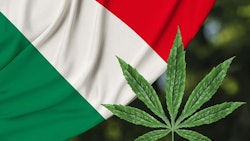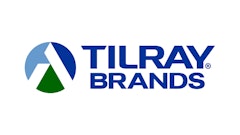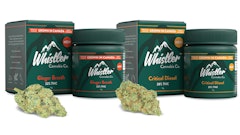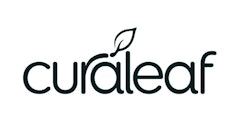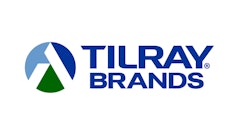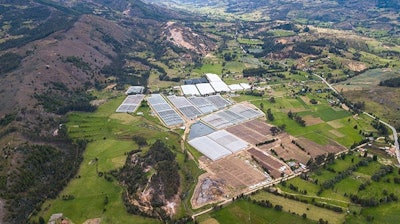
International cannabis companies are rushing to Colombia, attracted by the country’s relatively advanced regulation, beefed-up security, cheap production costs and perfect weather conditions with many companies already anticipating growing exports of medical cannabis beginning this year.
Unlike many countries in the region that only recently approved the clinical use of cannabis (like Perú), Colombia is further along the track after approving its regulatory framework in July 2016, which sets rules for the production, distribution, sale and export of seeds as well as derivative cannabis products.
With the passage of Law 1787, Colombia joined the more than a dozen countries that have put into practice different types of regulation to explore the advantages of this plant as an alternative pharmaceutical, Rodrigo Arcila, president of the Colombian Cannabis Association (Asocolcanna), said.
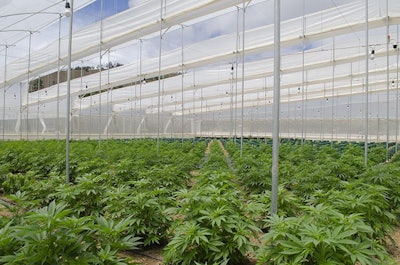 colombia medical cannabis greenhouse
colombia medical cannabis greenhouse“Colombia will be a world leader in cannabis in a few years. Investors have poured about US$600 million in medical cannabis, including farms and laboratories of by-products in about three years,” Arcila told Cannabis Business Times, noting that companies invested between US$200,000 and $300,000 per hectare cultivated and as much as $1.5 million per hectare in laboratory buildout.
Located close to the equatorial line, cannabis plantations can soak up sun 12 hours all year, compared with cannabis producers in Europe or North America who must install greenhouses to guarantee production throughout the year.
Investors have also compared the costs of growing cannabis in Colombia with international counterparts as they can find skilled cheap labor force with experience in the flower industry and inexpensive land. According to the consultancy firm Crop America, while a gram of cannabis flower costs between US$0.50 and US$0.80 to produce in Colombia, in Canada it can cost US$2.10.
Colombian-Canadian company Pharmacielo said the country’s strong sunlight, fertile soil and even 12-hour day and night cycle makes this country the best place in the world to grow cannabis.
“Our producing costs per gram of dry flower are US$0.04. In Canada, the cheapest that anyone has declared is US$0.95. That is dramatically different. Our outdoor cultivation process in Rionegro [Antioquia] receives 12 hours of light and 12 hours of dark. It is the perfect location and the perfect temperature,” David Gordon, chief corporate officer of Pharmacielo, told Cannabis Business Times in an interview.
Pharmacielo has 12.1 hectares (1.3 million square feet) of production and a sophisticated laboratory in the northwestern province of Antioquia.
Colombia’s business attraction also includes the range of trade agreements, especially those with countries where medical cannabis has also been regulated—such as Canada, the European Union and certain parts of the United States.
All those factors explain the frenzy in the industry. Currently, there are 160 companies with licenses operating in 22 of Colombia’s 32 departments, Arcila said.
Investment comes from Canada, followed by the U.S. and the EU. As a result, 70% of the companies with licenses for medical cannabis are 70%-owned by foreign capital and 30%-owned by national investors.
Colombian think tank Fedesarrollo sees export revenues from the cannabis industry bringing in US$109 million in 2020 before ballooning to US$800 million 2025 and then hitting an average of $2.3 billion in a decade.
(Other studies are even more optimistic. The firm Econcept—backed by three former ministers Juan Carlos Echeverry, Mauricio Santamaría and Tomás González—stated that this sector could achieve exports worth as much as than US$17.7 billion in the long term, even more than the oil industry, which for now remains the top source of government revenues.)
Private producer medcann Colombia, the local unit of Canadian producer medcann Pharma, believes the number of hectares licensed for medical cannabis this year has surpassed the estimates of Fedesarrollo. medcann Colombia alone expects to have 300 hectares cultivated by February 2021, Jon Ruiz, president of medcann Pharma, said in an interview.
“This is an industry that will have several thousand hectares in production in a few years,” he noted.
medcann, which currently has 23 hectares in production, expects to end the year with as much as 70 hectares cultivated and reach 300 hectares in February 2021 in the eastern province of Meta, Ruiz said.
medcann Pharma signed an agreement with Colombian laboratory Botaniki Lab to supply 600 annual tons of dried cannabis flower. The delivery of CBD-rich cannabis will demand from medcann to initially cultivate 300 hectares.
While cannabis exports are set to grow, so too will the number of hectares licensed for cannabis production.
By 2030, Fedesarollo estimates that 1,558 hectares will be licensed to cultivate cannabis plants, resulting in exports of as much as $3.06 billion under an optimistic scenario with international prices only dropping slightly, according to Fedesarrollo.
“Like in coffee, we hope Colombia will be distinguished as a world potential in production of very high-quality medical cannabis,” Arcila said.
Exports set to rise
Asocolcanna said small quantities of cannabis exported last year are part of sample research purposes, but formal exports of non-psychoactive and psychoactive cannabis are set to begin this year.
Clever Leaves, a leading vertically-integrated licensed producer of pharmaceutical grade medical cannabis and hemp extracts, became the first company to legally export cannabis from Colombia. In February of last year, it sent 360 grams of CBD-rich cannabis for research purposes to Canada. It also sent 5,500 hemp oil byproducts to the UK in August 2019. The company also sent CBD isolate to Australia, according to Gustavo Escobar, chief innovation officer at Clever Leaves.
With 15 hectares fully in production in the central province of Boyacá and a sophisticated laboratory in Tocancipá, located 44km north of Bogotá, Clever Leaves said it is capable of extracting 24,000 kilograms of dried flower, with plans to expand extraction capacity to 324,000 kilograms of dried flower in the near future, depending on revenue traction, the consolidation of international demand and the acceleration of regulatory approvals not only in Colombia but also in buying nations.
“Our goal is to expand to 100 hectares by around 2023,” Escobar said. “This is an important year for the consolidation of exports of different companies. In our case, we have built an important operational capacity in terms of cultivation and extraction capacity.”
Clever Leaves, controlled by Northern Swan Holdings Inc. and Eagle Canada Holding, is also expanding its cultivation and extraction capabilities to Portugal, where it has 85 hectares.
.png?auto=format%2Ccompress&fit=max&q=70&w=400) northern swan
northern swan
“The reason why it was promoted having an operation in Portugal is because Colombia by regulation does not allow the commercialization of dried flower as a final product. The regulation in Colombia is oriented to the added-value-products and the extraction of final products. Global demand mostly recognizes the flower as a final product. Since there is a possibility to produce dry flowers and offer it, we considered the Portugal operation,” Escobar said.
Clever Leaves also received a quota to cultivate, extract and commercialize high-THC medical cannabis in Colombia. The grant comes as a result of commercial quotas allocated to by the Colombian Technical Quotas Group (TQG), although the company declined to provide exact figures about the quota granted and amount set to export.
Clever Leaves expects cannabis plantations with THC content to be ready during the second half of this year.
Meanwhile, the company is also eyeing growing exports of pharmaceutical products to Germany, but it declined to provide an export target. It is also seeing exports to CBD and THC to Perú and Brazil.
Meanwhile, PharmaCielo announced Jan. 27 that it entered into a three-year agreement with Canadian XPhyto Therapeutics Corp to supply at least 30,000 kilograms of medicinal-quality cannabis extract oils and isolates over a three-year period, including those containing THC for the German market where XPhyto has subsidiaries.
“PharmaCielo could supply CBD isolates, broad-based or full spectrum (cannabis) depending on the market needs,” Gordon said. The company expects its exports to begin mid-2020
In August of last year, PhamaCielo exported CBD isolate to Swiss pharmaceutical company Creso Pharma, but the company declined to provide the amount exported.
When asked Pharmacielo’s export target, Gordon declined to provide those figures, claiming that Pharmacielo is a publicly-traded company in Canada.
On Jan. 17, PharmaCielo Colombia Holdings, the local unit of Pharmacielo also received by the TSX Venture Exchange (TSXV) approval for exports of Colombian medicinal-grade CBD isolate in the U.S. in an order for up to US$3 million.
“Each of those exports is important. Each one is the first time someone has opened the door from Colombia to that market. Once the door is open, we can do more,” Gordon said. “Every first shipment is a regulatory challenge. Each country has their own import requirements.”
PharmaCielo, which currently has 12.1 hectares in production, said it will supply plant seedlings to over 1,000 hectares (2,500 acres) of contract growers’ open-air greenhouses ready for cultivation.
“That doesn’t happen overnight but it happens over time and the first two growing facilities have been identified, and are coming on stream soon,” he said .
In August of last year, medcann Colombia became the first company with a quota granted by the government for the processing and export of psychoactive cannabis. medcann is currently negotiating high-THC cannabis with three companies but declined to provide further details, Ruiz said.
The headache of licenses
Stiff regulation has complicated the production and exports of cannabis products with many investors saying the export approval process is tortuous. Companies also warned that Colombia could lose its competitive advantages quickly if permits are not approved quicker.
“The regulatory framework has proven to be a bit complex to accompany the speed of industry development and world demand. Even the domestic market has proven to be too strict,” Ruiz said.
Regulation requires growers to get licenses from government offices ranging from the Justice Ministry to the National Food and Drug Surveillance Institute, INVIMA. Companies are required licenses for the manufacture of cannabis by-products, the use of seeds for planting, growing psychoactive cannabis plants and growing plants.
“Colombia has deregulated something that was forbidden for 40 years. The problem is that regulation is so cumbersome that other countries like Peru and Ecuador are boosting proceedings now, and they advancing by leaps and grounds,” Ruiz said.
The other problem is the avalanche of requests for licenses, which has required increasing government staff to process them.
As of September, the Ministry of Justice had approved 325 licenses for the cultivation of psychoactive and non-psychoactive cannabis of the total 1,802 requests. Meanwhile, the Ministry of Health had granted 135 licenses for manufacture of by-products as of September, compared with the 646 applications received, Arcila said.
License requests to cultivate cannabis jumped from 68 in 2017 to 1,017 in 2018 and 717 in 2019. Of that total, there are 1,388 licenses pending approval, while 66 were rejected.
But obtaining a license is not a guarantee to be fully in the business
‘It’s like holding a passport without a visa,” said Ruiz.
The industry has also complained about the delays to obtain quotas to cultivate, extract, and commercialize THC medical cannabis. Clever Leaves requested THC medical cannabis quotes early in 2019, for instance, but it only obtained them at the end of 2019.













